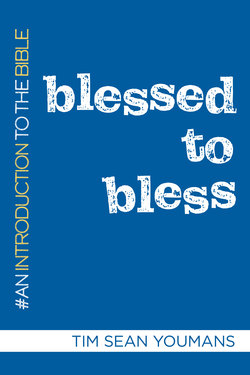Читать книгу Blessed to Bless - Tim Sean Youmans - Страница 13
На сайте Литреса книга снята с продажи.
Оглавление3
The Fall of Humanity
Read Genesis 3:1–24.
This story is often referred to as the “fall of man” or the “fall of humanity.” The man and the woman are allowed to eat the fruit from any tree in the garden except one—the Tree of the Knowledge of Good and Evil. The fruit, by the way, was not an apple. The story does not specify, so I wonder, “What fruit would possibly tempt you to disobey God?” When asking this question a few years ago, after a moment of serious thought a student very earnestly said, “Fried chicken.” It has thus been named in my class ever since.
Here is one way to illustrate this: You are at a family picnic. You hear a flutter of giggles behind you. You turn around and your three-year-old nephew is running naked in the sprinkler. Everyone laughs and giggles, snaps a few pictures to embarrass him in front of future girlfriends, but there is no real concern. Why? “Because the child is innocent and doesn’t know what he’s doing is inappropriate.”
Same setting, an hour later. Except this time, you hear awkward murmurs and gasps. Uncle Ted, who is sixty years old, is running naked through the sprinklers! People are scrambling to cover him up with blankets and escort him into the house. A weird tension comes over the picnic. Why? “Because Uncle Ted ought to know better!”
Uncle Ted is supposed to know that what he is doing is inappropriate. One is innocent, the other is not. In the garden story, being naked has a symbolic meaning. When they lost their innocence by gaining knowledge they did not previously have, life became awkward and complicated.
Why wouldn’t God want Adam and Eve to know good and evil?
There is pain involved when we lose innocence, especially when it is lost prematurely. The story suggests that God intended humanity to maintain innocence, at least for a while. Disobedience is defined, in this story, as jumping the gun on God. So a question for you: remaining within the “world” of this story, do you think God would have ever given the man and the woman the ability to know good and evil?
Sin and original sin. Sin is when human beings act or think against God’s original intent. Original sin is the belief that Adam and Eve introduced sin into the human race and every human is subsequently born sinful.
When talking about this story, I often ask fifth graders, who are ten years old, “Do your parents let you watch PG-13 movies?” It’s typically 50/50, but I press the ones who are not allowed. “Why not? What are your parents afraid of?”
And their answers are smart. “My parents don’t want me to see something that is bad because I might copy what I see. Or it will confuse me.”
“Why would it confuse you?” I ask.
“Because we aren’t ready for it!”
Is the story suggesting the same idea? Adam and Eve would have eventually been ready for the knowledge of good and evil, but they acted too soon—all things in due season. I don’t know if this is the answer or if it is even the right question to ask, but it seems important.
Apply this to other areas of life. Knowledge is a powerful commodity and ought to be used for the good of everyone around us. When we mishandle it, we betray the purpose of our creation. Christian theology calls this the “fall of humanity” or “sin.”
The snake is a symbol for a dangerous temptation and later associated with the devil because of a story from Jewish mythology about Satan being a fallen serpah.
Questions for Reflection or Discussion
1. Does God want people to know the difference between good and evil? If so, when and how?
2. Should children watch PG-13 movies before age thirteen? R movies before age seventeen? Most parents are okay with kids seeing some things in these movies and not others. Discuss the distinctions.
3. A simple definition of sin is doing or thinking things that God would rather you did not do or think. What things in your life does God consider sin?
